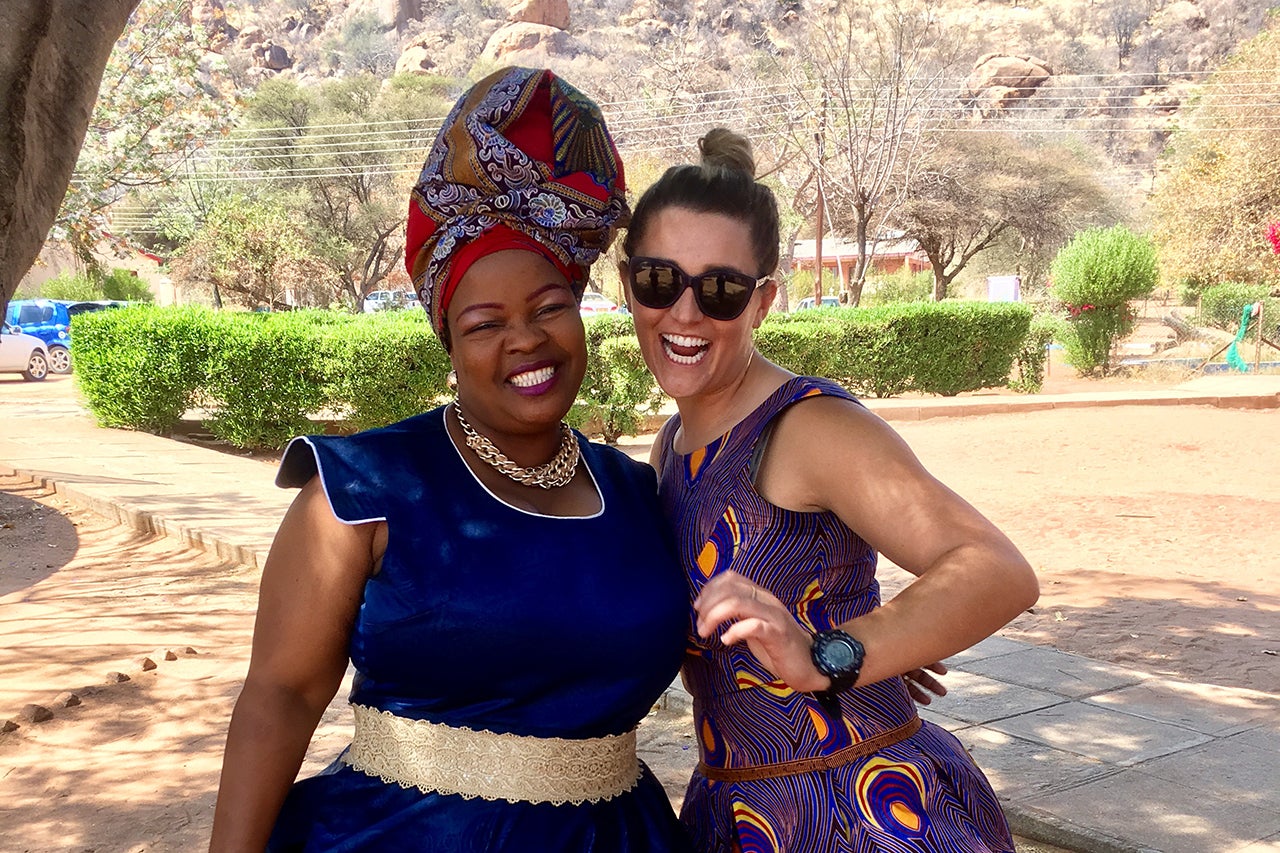For the better part of a decade, the College of Charleston has been ranked as a top producer of Peace Corps volunteers. And that trend continues.
This week, the Peace Corps announced that the College is the No. 13 volunteer-producing institution among medium-size colleges and universities across the country. At the moment, 21 alumni from the College are serving in Peace Corps posts around the world. The College is the sole South Carolina school to appear in the 2018 national rankings.
Among those alumni is Sarah Bald ’16, a sociology major who is working in Botswana. Regarding how the College prepared her to thrive in the Peace Corps, Bald offers some keen insights.
“College of Charleston students participate in a variety of courses with a global focus,” she says. “Unlike students at other universities, a typical freshman fall semester will include courses such as Intro to African Politics, World Religion, International Studies and Cultural Anthropology. Our professors conduct research around the world and bring their experiences back to campus. So, after four years at the College, students are eager to embark on a global adventure, and serving their country as a Peace Corps volunteer is the perfect fit.”
For Bald, one her favorite aspects of service is greeting members of her community in their local language – Setswana.
“Greetings are incredibly important in Botswanan culture and village members are stunned when they see me, an American, conversing in their native tongue,” she says. “For many of my neighbors, I am the only American they have ever known and it is truly an honor that I get to be the person to represent my home country.”
According to Stephanie Visser, director of the College’s Center for Civic Engagement, the College provides students with experiences that make them ideal Peace Corps volunteers.
“There’s a big focus on volunteer service here at the College, and that’s fitting,” Visser explains, “because service allows students to get involved with new initiatives and develop technical, social and academic skills that can’t be learned in the classroom. It’s also a key way for students to try out possible fields of work and careers. Many of our students find that volunteering calls into question their perspective on the world and the choices they make. That in turn can help them develop a keen sense of self-awareness that proves pivotal for them in deciding what they want to do with their life.”
And if you ask Acting Peace Corps Director Sheila Crowley, she’ll tell you that serving in the Peace Corps is a win-win for recent college graduates, particularly those from liberal arts institutions. Not only does their academic background prepare them well for working in new cultural surroundings, but that two-year stint overseas can be good preparation for future careers.
“Recent college and university graduates foster capacity and self-reliance at the grassroots level,” Crowley says. “And they consequently make an impact in a variety of communities around the world. When they return to the U.S. after their time overseas, they have new, highly sought-after skills and an enterprising spirit that further leverages their education and strengthens their communities.”
You can find a complete list of the 2018 rankings for the top 25 Peace Corps colleges and universities at the Peace Corps website.





